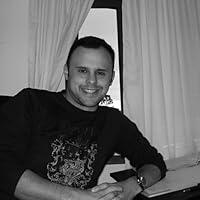
Carlos Magno
Sobre o Autor
Carlos Magno, known in English as Charlemagne, was a medieval emperor who ruled much of Western Europe from 768 to 814. He is often referred to as the 'Father of Europe' for his role in uniting a significant portion of the continent during the early Middle Ages. His reign marked the Carolingian Renaissance, a revival of art, culture, and learning based on classical models, which laid the groundwork for the future development of Europe. Under his leadership, the Frankish state expanded through military conquests, and he became the first Holy Roman Emperor, crowned by Pope Leo III in 800, which established a precedent for the relationship between the church and state in medieval Europe.
Charlemagne's policies encouraged the spread of Christianity and education. He established a system of local governance and promoted the use of the Latin language in administration and liturgy. His legacy has endured through the centuries, influencing various aspects of European culture and politics. Charlemagne's vision of a united Christian empire continues to resonate to this day, as he is celebrated as a symbol of European unity and collaboration.